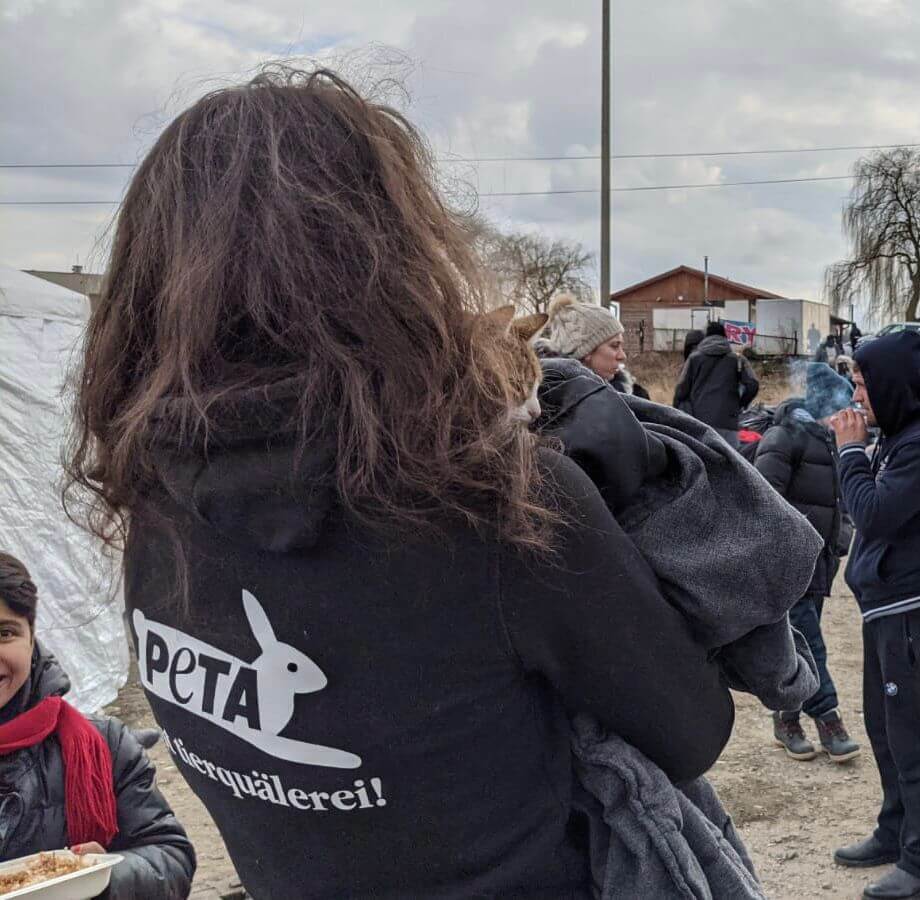NEWS AND COMMENT: The UK’s Homes for Ukraine scheme has generated a lot of excitement both for refugees and homeowners. I have read that there is a Facebook frenzy of homeowners posting photographs and descriptions of their home to promote it as an ideal sanctuary for a refugee. There appears to be competition among homeowners to help. If true, it shows the depth of sympathy that British citizens have for the plight of Ukrainian refugees fleeing this horrendous, illegal war. The madness of Putin has shocked the world.

Please read the P.S. at the base of the page.
The issue at hand from my perspective as an animal advocate is not only how to help Ukrainian refugees but their companion animals. Very many refugees have bravely struggled to bring their companion animals, normally cats and dogs, with them often in their arms because they don’t have a carrier. It’s been awe-inspiring to watch but distressing at the same time.
The issue then is when a British person opens up their home to a Ukrainian refugee, in their kindness, they might also be accepting a companion animal. I don’t know whether they realise this at the outset. And there will be a quarantine period during which the companion animal will be in a quarantine facility and therefore not at their home. However, when that period is finished, they will have to do take in a companion animal as well as humans.
And therefore, there needs to be facilities within the home to cope with this. And if there are existing companion animals in that home this may present a problem because resident cats as we know do not like incoming strange cats to live with them. Resident dogs may have the same issues. Not all cats and dogs are strongly resistant to incoming animals but the norm is that they are.
In a bigger property you can separate them but, in an apartment, this is going to be very difficult to achieve. I don’t want to put a dampener on proceedings because this is a wonderful scheme which is proving to be highly successful at least at the outset. But we have to be realistic.
The government website which explains the Homes for Ukraine scheme recognises that many people will be fleeing the conflict with their pets. And they realise that they won’t be able to comply with all the usual pet transport arrangements required under normal times to protect the host country from diseases such as rabies. The UK has been free of rabies for many, many years but it is present in Ukraine. My research indicates that rabies is a significant veterinary and public health problem in Ukraine. It is one of the biggest rabies-infected countries in Europe.

Rabies, then, is a serious issue in bringing companion animals into the UK without the usual paperwork. For that reason, the government has put in place a streamlined process. The Animal and Plant Health Agency will provide quick approvals and relevant quarantine arrangements they say. The government will cover the costs.
Refugees need to contact this agency who will confirm their approval and organise the necessary stay in quarantine which is required to complete the rabies treatment process. The maximum stay in quarantine for a companion animal that has received no treatment for rabies is four months. Some may require a shorter quarantine period if they have had some treatment for rabies in the past. The phone number to call is +44 3000 200 301 option 2.
The point of this article is to flag up the animal context in the Homes for Ukraine scheme. It might be overlooked by some because people naturally focus on other people but we can’t forget the animals and they do present some challenging hurdles.
P.S.: British citizens engaged in this scheme need to check their mortgage terms and conditions and if they are leasing, they need to check their lease to make sure that they are not in breach of either. The second is more important than the former because it is more likely that a lease will forbid the scheme operating in their property. There’s also the issue of insurance. They should check their insurance policy as well if they have one.
The UK government has done a U-turn on vetting checks for hosts after safeguarding worries. This needs to be noted by British citizens. Anyone hosting a Ukrainian refugee at home will undergo Disclosure and Barring Service (DBS) checks after the vetting process has been toughened.
The checks can take place after the refugees arrive which is predicted to be as early as next Monday. Those hosting children will be subject to enhanced DBS checks. Others will undergo basic checks at £23 per person which will be paid by the government.


Thanks for this Tamara. I did not know.
I also know people are paying for AirB&B’s for rentals in Ukraine to get money to them even if the home is no longer there because it’s been bombed out. 🙂 Kudos to those donating.